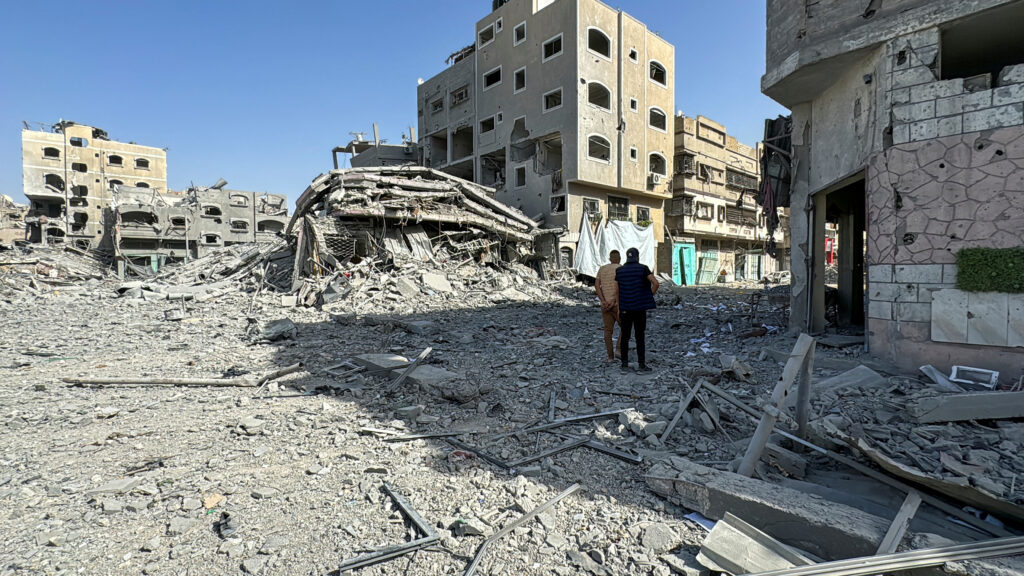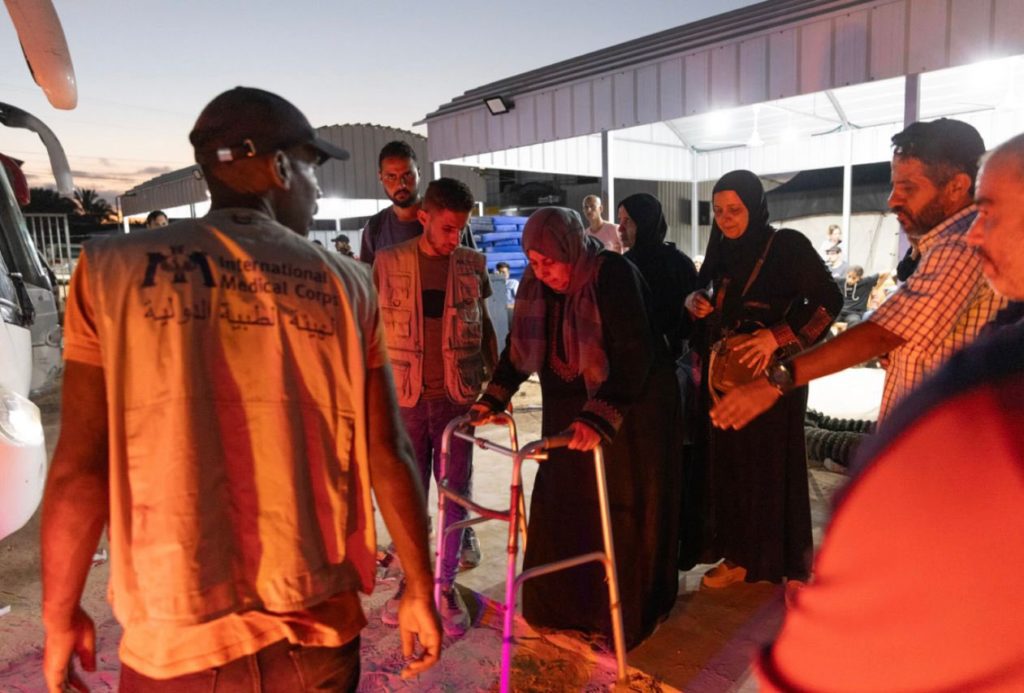Location: Gaza City, Gaza Strip
In a significant humanitarian operation, the World Health Organization (WHO), in collaboration with the United Arab Emirates (UAE), successfully evacuated 85 critically ill and injured patients from the Gaza Strip to Abu Dhabi. This marks one of the largest medical evacuations from Gaza in recent months, providing a crucial lifeline for patients in dire need of specialized medical care that is unavailable in the besieged region.
The evacuation, which took place despite ongoing hostilities, is seen as a beacon of hope for thousands still trapped in Gaza with severe medical conditions. The operation reflects the urgent need for continuous international assistance and the necessity of sustained medical evacuations amid the deteriorating humanitarian situation in the region.
A Lifeline for Gaza’s Most Vulnerable

The 85 patients evacuated included 35 children and 50 adults, all suffering from a range of critical health conditions that could not be treated within Gaza due to the collapse of the healthcare system. They were accompanied by 63 family members and caregivers who traveled alongside them to provide support and comfort during their journey to the UAE.
Among the medical cases evacuated:
- Cancer Patients: A total of 53 patients, including four children, were battling advanced stages of cancer that required specialized treatments such as chemotherapy, radiotherapy, and surgical interventions.
- Trauma and War-Related Injuries: 20 individuals had sustained severe injuries from the ongoing conflict, including gunshot wounds, shrapnel injuries, and burns that necessitated complex surgical procedures and long-term rehabilitation.
- Blood Disorders and Chronic Illnesses: Three patients, including those suffering from thalassemia and hemophilia, needed urgent hematological care and transfusions that were no longer available in Gaza.
- Congenital and Neurological Conditions: Three children required highly specialized pediatric surgeries and long-term management for conditions such as congenital heart defects and neurological impairments.
- Other Severe Cases: Several patients were also suffering from Fanconi anemia, kidney failure, liver diseases, and other life-threatening conditions requiring advanced medical intervention.
The journey to safety was fraught with logistical and security challenges. Patients were first transported from hospitals across Gaza to the Kerem Shalom crossing. From there, they were transferred to Israel before reaching Ramon Airport near Eilat, where they boarded a medical flight to Abu Dhabi. The process faced multiple delays, initially scheduled for an earlier date but postponed due to security concerns and the complexities of coordinating a large-scale medical evacuation amid an active conflict zone.
WHO and UAE’s Coordinated Effort
Dr. Hanan Balkhy, WHO Regional Director for the Eastern Mediterranean, expressed deep gratitude towards the UAE for its crucial role in facilitating the evacuation. She emphasized that regional solidarity is essential in addressing humanitarian emergencies, stating, “This initiative demonstrates the power of regional cooperation in saving lives. More such efforts are needed to provide relief to those who are still suffering.”
WHO Director-General Dr. Tedros Adhanom Ghebreyesus echoed this sentiment, praising the UAE for its swift action and stressing the urgent need for more evacuation missions. He urged the international community to open additional evacuation corridors, allowing patients to be transported not just to the UAE but also to Egypt, Jordan, and the West Bank, including East Jerusalem. He further stated, “Thousands of sick people in Gaza are suffering needlessly. We call for an immediate ceasefire and unrestricted humanitarian access.”
Gaza’s Collapsing Healthcare System
The situation in Gaza remains catastrophic, with its healthcare system nearing total collapse. Since the conflict escalated, hospitals and medical facilities have been repeatedly targeted, leading to significant destruction and loss of life among healthcare workers. Reports indicate that more than 136 attacks on medical facilities have been documented, leaving many hospitals either partially functioning or completely out of service.
The destruction of hospitals has forced patients to seek medical care in makeshift clinics, while many critical cases remain untreated due to a severe shortage of medical supplies, electricity, and medical personnel. Doctors and nurses are working under extreme conditions, often performing surgeries without anesthesia and relying on limited resources to treat a growing number of wounded civilians.
United Nations officials have condemned these attacks on healthcare infrastructure, calling them violations of international law. The UN High Commissioner for Human Rights, Volker Türk, stated, “Hospitals should be places of healing, not targets. The destruction of Gaza’s medical facilities has turned hospitals into death traps, with patients and healthcare workers fearing for their lives every day.”
Challenges in Medical Evacuations
Despite the success of the recent evacuation, the process of transporting patients out of Gaza remains complicated and heavily restricted. Since the start of the crisis, approximately 5,000 patients have been evacuated for medical treatment in Egypt, Qatar, and the UAE. However, thousands more remain stranded, waiting for a chance to receive the life-saving care they desperately need.
One of the major hurdles in the evacuation process is the closure of key border crossings, particularly the Rafah crossing into Egypt. The intensification of military operations in the region has made it nearly impossible for many to leave, with patients often waiting for months before being approved for evacuation. Many have died before getting the opportunity to travel for treatment.
Humanitarian organizations have repeatedly called for an urgent resolution to this issue, demanding that safe corridors be established to ensure continuous medical evacuations. Without such efforts, the death toll among critically ill patients is expected to rise.
Global Response and Call to Action
The international community has responded with concern to the worsening humanitarian situation in Gaza. WHO continues to urge governments and humanitarian organizations worldwide to ramp up their efforts in facilitating medical evacuations and ensuring that vital healthcare resources reach those in need.
In addition to the UAE, other countries and organizations have pledged support, but the scale of the crisis requires a more coordinated global effort. The success of this recent evacuation highlights the importance of sustained medical interventions and the urgent need for an international commitment to protecting healthcare facilities and patients.
The WHO has also emphasized the need for permanent, sustainable solutions rather than temporary evacuation missions. It has called for the restoration of medical supply chains, rebuilding of hospitals, and an immediate ceasefire to prevent further civilian casualties.
Conclusion
The evacuation of 85 patients from Gaza by WHO and the UAE is a critical reminder of the dire humanitarian crisis unfolding in the region. While this operation has brought hope to those who were able to leave, thousands remain trapped with little to no access to medical care.
The success of this evacuation mission demonstrates the power of international collaboration in addressing urgent healthcare needs. However, without sustained and systematic efforts, the suffering of Gaza’s population will only continue to worsen. It is imperative that world leaders act now to facilitate more evacuations, ensure medical aid reaches those in need, and work towards a peaceful resolution to the ongoing crisis.
Only through collective action can the escalating healthcare emergency in Gaza be effectively addressed, ensuring that every patient receives the medical attention they deserve.
Gold Prices Surge in UAE: What It Means for Your Investments



